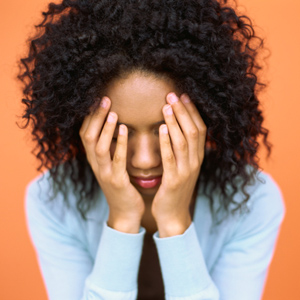
The treatment of PMS can sometimes be as challenging as making the diagnosis of PMS. Various treatment approaches have been used to treat this condition. Some measures lack a solid scientific basis but seem to help some women. Other treatments with a sound scientific basis may not help all patients.
General measures include dietary changes, exercise, and emotional support from family and friends during the time of a woman's cycle. Avoidance of salt before the menstrual period, reduction of caffeine intake, elimination of smoking, alcohol and refined sugars have all been recommended and may help symptoms.
Other dietary alterations that have been recommended include restricting the intake of animal fats, dairy products and calcium.
Women have been encouraged to increase their intake of complex carbohydrates (for example, pasta and rice), magnesium and zinc (minerals), vitamins A, E, and B6. While doses of vitamin B6 of 50mg once or twice daily can help relieve symptoms of PMS, excessive use of vitamin B6 is discouraged, since it can cause nervous system symptoms including tingling and numbness in the arms and legs, and even permanent nerve damage.
A variety of medications are used to treat the different symptoms of PMS. Medications include diuretics, pain killers, oral contraceptive pills, drugs that suppress ovarian function, and antidepressants.
- Diuretics: Diuretics are medications that increase the rate of urine production, thereby eliminating excess fluid from the body tissues. Although there are several nonprescription diuretics, the decision whether diuretics are advisable should be left to the medical practitioner, since there are side-effects with their longterm use. Spironolactone (such as Aldactone) is a prescription diuretic that has been widely used to treat weight gain due to water retentions and premenstrual swelling of the hands, feet or face. Unfortunately, it has not been effective in all patients.
- Analgesics (pain killers): These are commonly given for menstrual cramps, headaches, and pelvic discomfort. The most effective group of analgesics appear to be the non-steroidal anti-inflammatory drugs (NSAIDs). Examples of these are ibuprofen (such as Brufen® or Nurofen®), naproxen (such as Naprosyn®) and mefenamic acid (such as Ponstan®).
- Oral contraceptives (OCs): These pills are sometimes prescribed to even out ovarian hormone fluctuations. While approximately 25% of women taking OCs find improvement, 50% find no change, and the remainder may even experience aggravation of symptoms. The newer birth control pills, with their improved hormonal formulations, may prove to be more beneficial than older ones.
- Ovarian suppressors: Drugs like danazol have been prescribed to suppress ovarian hormone production. Unfortunately, danazol cannot be used over long periods because of side-effects. Complete suppression of ovarian function by a group of drugs called gonadotropin-releasing hormone (GnRH) analogues has recently been found to help some women with PMS. These GnRH analogues are not given long term (more than 6 months) because of their adverse effect on bone density and an increased risk of bone thinning (osteoporosis).
- Antidepressants: These are widely used in treating the mood disturbances related to PMS. Antidepressants appear to work by increasing brain chemical (opioids, serotonin and others)levels that are affected by the ovarian hormones. These opioids are important in the control of mood and emotions. Fluoxetine (such as Prozac®) and paroxetine (such as Aropax®) are examples of antidepressant medications that have been found to be effective in treating the mood changes associated with PMS.
It is important to know that these drugs, although useful in treating mood disturbances in some women, are not necessarily effective in treating the physical symptoms.
Often, it is a combination of diet, medications and exercise that is needed to afford the maximum improvement from the many symptoms of PMS.
Exercise can help relieve some of the symptoms of PMS. Physical activity improves general health and helps relieve nervous tension and anxiety. Exercise is believed to release endorphins.
Endorphins contribute to euphoric feelings such as the "runner's high" experienced after prolonged exercise. They are a group of neurotransmitters affecting mood, perception of pain, memory retention and learning.
Aerobic exercise for 30 minutes should be done three to five times a week. Aerobic exercise strengthens the heart and improves overall fitness by increasing the body's ability to use oxygen.
Swimming, walking, and dancing are "low-impact" aerobic activities. They avoid the muscle and joint pounding of more "high-impact" exercises like jogging and jumping rope.
Benefits include cardiovascular fitness, muscle tone, weight control or reduction, decrease in fluid retention and increase in self-esteem.
Widespread recognition of PMS has attracted a broad range of research interest in the treatment and management of the diverse symptoms of PMS.
Although there is no "cure" for PMS at this time, there are many options in managing its signs and symptoms. The first priority is an accurate diagnosis.
Other medical or psychological conditions should be identified and treated. Proper diet, exercise and life style changes can help symptoms before resorting to over-the-counter or prescription medications.
Most women can control their PMS symptoms successfully so that they do not interfere with their leading healthy and productive lives.




 Publications
Publications
 Partners
Partners















